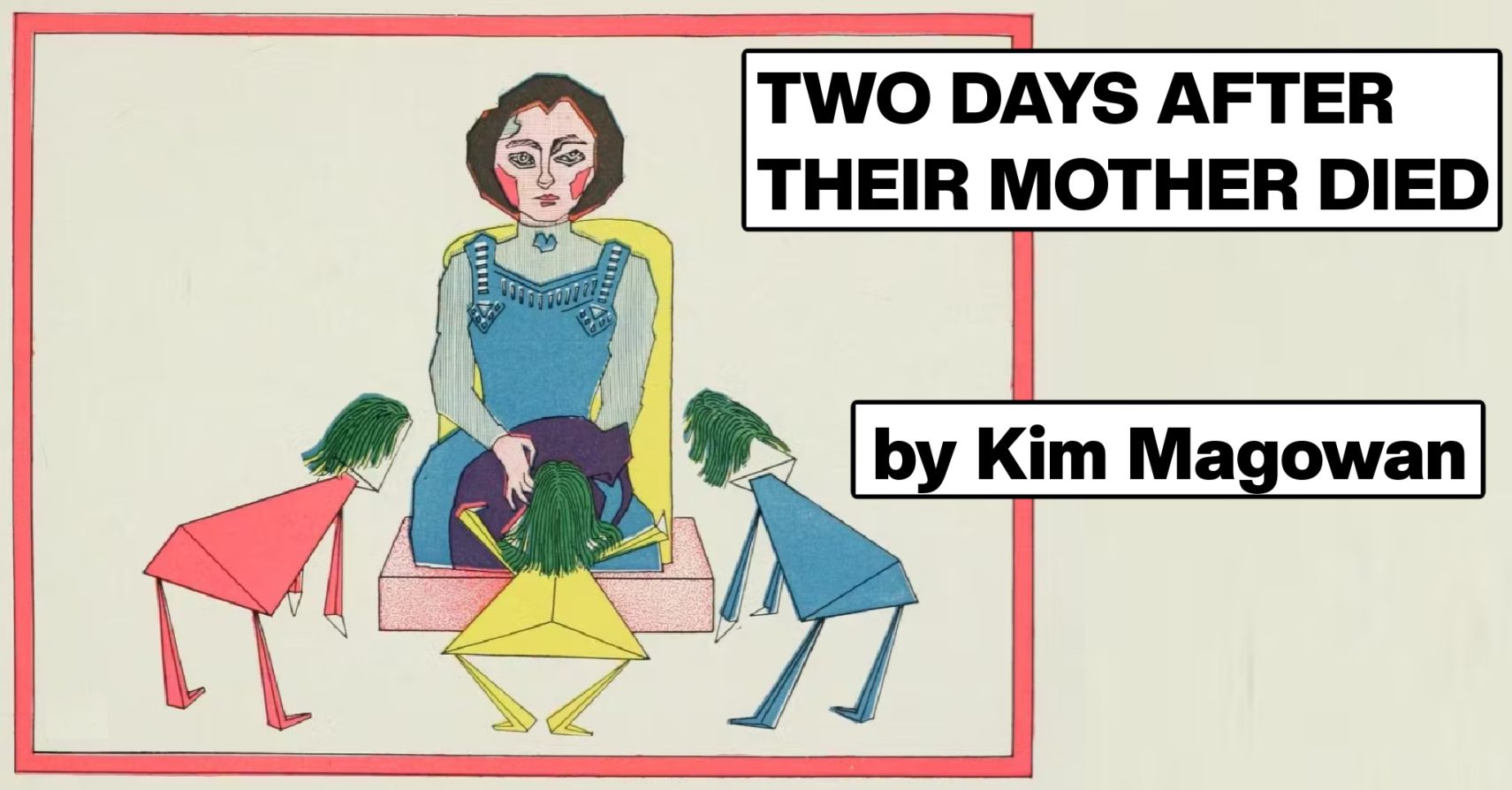Josie uses her key to let herself and her sister Amy into Cora’s apartment. She walks in first, then turns to see Amy standing in the doorway, hand braced against the doorframe. Josie says, impatiently, “Come on.”
Finally, Amy enters this apartment their mother lived in for three years, moving here after she injured her knee and at last accepted that it made no sense for an older woman to be living in a house with two sets of stairs. But Amy has never seen it, because she’s so stubborn and unforgiving.
Watching her older sister walk slowly into the apartment reminds Josie, painfully, of their mother. After she got sick Cora slowed down too, as if just moving her body hurt.
Josie opens the window over the kitchen sink. It’s stuffy, the air stale. The apartment has that unlived-in feeling of coming home after a trip. Cora had been in the hospital for twelve days prior to dying, during which Josie came here only once, to pick up her alpaca shawl and pairs of cozy socks. But it’s very neat. There are three plates and a coffee mug drying in the dish rack. Cora never used her dishwasher—“What’s the point?” she’d say. “It’s just me.”.
Now Josie puts the plates and the coffee mug in the cabinet. It’s not a big apartment, all one long floor with the bathroom and the bedroom in the back. Nonetheless it’s pretty. Their mother has great taste.
Had.
Watching Amy look around, Josie wonders what Amy will want, will claim. The painting over the decorative fireplace is quite valuable, for instance. Amy must remember that painting; their mother bought it years ago. It was inspired by a photograph of a girl sitting in a cornfield with her legs bent behind her. The girl in the photograph was crippled, couldn’t walk, though you can’t tell that from the photograph, or from the painting. At any rate, it’s worth money. There are other things in the apartment worth money. Josie wonders whether Amy is assessing these items—the artwork, the knickknacks on the end table, a ceramic pear, a Murano blown-glass vase—and calculating their value. She studies Amy, in her cowl-neck cashmere sweater. Amy, like Cora, values material objects. Earth signs, both of them.
Josie feels her lips tighten and thin into a grimace.
Amy pauses by the framed photograph of the three of them on the end table, taken that day they went to Point Reyes and ate three dozen oysters—so many oysters! It’s the one photograph of Amy in the living room, though Josie knows there’s another one by Cora’s bedside table, taken after Amy’s graduation from Smith. The living room photo flatters Amy more than Josie, who is squinting. They used to argue about photos. “Delete that one! I have a double chin!”
Watching Amy, Josie hopes she feels bad. The heat of the feeling surprises her, since just yesterday she was telling her friend Bridget “My relationship with Mom was good—well, Mom was complicated, but mostly good. I’m worried that Amy will take her passing much harder than me, because they were estranged.” But now, she wants Amy to feel shitty. To confront her rigidity and selfishness. To brim with impossible regrets.
How hard could it have been to visit Cora in the hospital? To make peace?
Every time Josie visited her, she saw her mother turn to the door, see her, and a flash of disappointment would slip over her face. Because of course Cora would have hoped that the silver lining of dying is that Amy would want to see her. “Mom is dying.” Josie told Amy that, two weeks ago.
The only time Amy had come up in conversation was towards the end, when Josie was holding her mother’s bony hand and Cora looked into her eyes and said, “Tell her—” She never completed the sentence, and after waiting a minute, Josie said, “I will, Mom.”
And she will. Someday. At some point Amy might ask, “Did Mom give you any message for me?” and Josie will tell her, because Josie knows perfectly well what Cora meant to say, even if she never in fact said “Amy” or completed her own thought. But Amy will have to ask! She will have to fucking ask.
Josie watches Amy pause in front of the loveseat and coffee table—that’s where their mother used to sit and watch TV, her Brit Box detective shows, and do her needlepoint. Her sewing basket is on the coffee table, as always. Amy bends, fishes inside of it, and grabs Cora’s embroidery scissors. She always bought the same kind of scissors, tiny ones shaped like a stork, the upturned beak the blades. The loops you stuck your fingers through were the legs.
“I want these,” Amy says, looking at Josie.
How they loved those scissors when they were little girls! They always wanted to play with them, to cut out their paper dolls and snowflakes. “They are not a toy,” Cora would say, sternly. Also: “Be careful!” Though Josie understands that she probably meant be careful not to cut yourself, not what she’d assumed then—be careful not to damage my scissors.
The sisters regard each other. The scissors are lovely, but not valuable. They probably cost less than forty dollars. Amy isn’t asking permission, Josie thinks. She isn’t saying “May I have these?”
She gives permission anyway, as if the scissors are hers to dispense. “Take them,” says Josie, putting peculiar emphasis on the verb.

